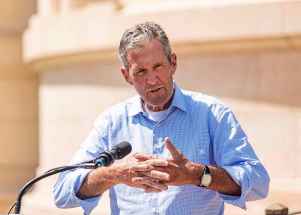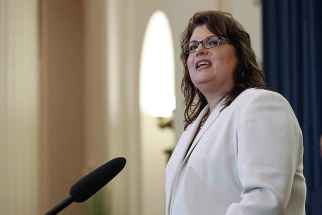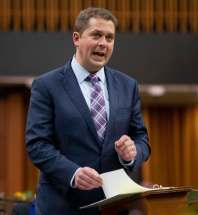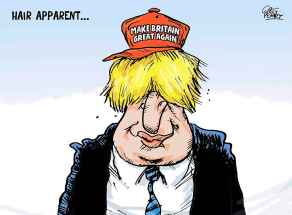NDP will be hard-pressed to keep status quo
Read this article for free:
or
Already have an account? Log in here »
To continue reading, please subscribe:
Monthly Digital Subscription
$0 for the first 4 weeks*
- Enjoy unlimited reading on winnipegfreepress.com
- Read the E-Edition, our digital replica newspaper
- Access News Break, our award-winning app
- Play interactive puzzles
*No charge for 4 weeks then price increases to the regular rate of $19.00 plus GST every four weeks. Offer available to new and qualified returning subscribers only. Cancel any time.
Monthly Digital Subscription
$4.75/week*
- Enjoy unlimited reading on winnipegfreepress.com
- Read the E-Edition, our digital replica newspaper
- Access News Break, our award-winning app
- Play interactive puzzles
*Billed as $19 plus GST every four weeks. Cancel any time.
To continue reading, please subscribe:
Add Free Press access to your Brandon Sun subscription for only an additional
$1 for the first 4 weeks*
*Your next subscription payment will increase by $1.00 and you will be charged $16.99 plus GST for four weeks. After four weeks, your payment will increase to $23.99 plus GST every four weeks.
Read unlimited articles for free today:
or
Already have an account? Log in here »
Hey there, time traveller!
This article was published 25/07/2019 (2331 days ago), so information in it may no longer be current.
Manitoba’s NDP has a long road ahead to regain the trust of voters.
With a provincial election campaign just weeks away, the NDP and its rookie leader, Wab Kinew, will look for ways to rebound after a crushing 2016 election defeat.
But it won’t be easy.
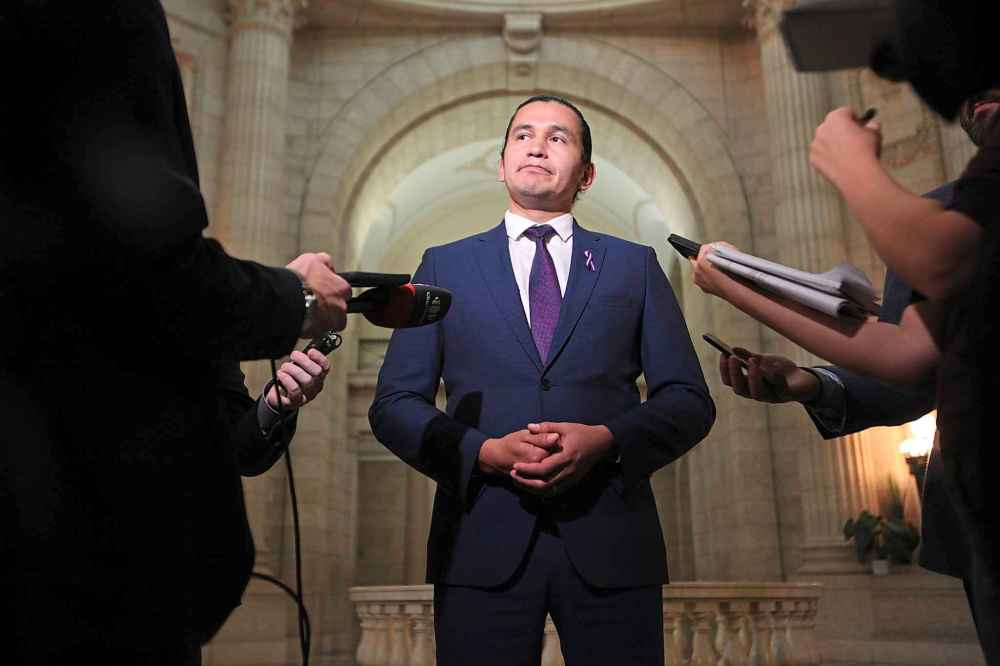
The NDP, under then-premier Greg Selinger, won only 14 of 57 ridings in that race – the party’s worst showing since it was reduced to second opposition in 1988, winning just a dozen seats.
The NDP is under no illusion it can form government this time around. Keeping the seats it has – and winning back a few it lost in 2016 – is about all the party can hope for at this point. Thompson, Brandon East and a few key ridings in Winnipeg will be on their radar.
That includes St. Boniface, a riding the NDP lost in a byelection last year to Liberal Leader Dougald Lamont, after Selinger gave up the seat in early 2018. The loss saw the party’s seat count fall to 12, after the expulsion of MLA Mohinder Saran from NDP caucus in 2017 over allegations of sexual harassment.
The stakes are high for the NDP and its leader. Winning anything less than 16 to 18 seats in this election would be a disaster for the party. It would likely trigger an internal backlash against Kinew and make it difficult for him to survive a mandated leadership review.
All of which underscores the importance of trying to regain the trust of voters, a difficult task for any party that alienated the public as badly as the NDP did.
It’s difficult to imagine a scenario where an emphasis on heavy spending, tax increases and little to no interest in balancing the books would reverse the mistrust many voters feel towards the NDP.
Not only did the former government raise taxes without a mandate to do so (the broadening and raising of the PST, and an increase in the fuel tax, all within a one-year period), it set the provincial treasury on a path to near ruin. After years of relatively stable finances under former NDP premier Gary Doer, government embarked on a spending spree that resulted in record deficits and debt. The province’s debt-to-GDP ratio nearly doubled, and the province was hit with several credit rating downgrades.
For many, the NDP could no longer be trusted with taxpayers’ money.
That sentiment won’t be easily reversed. Voters have long memories; it takes time to convince the public that a party has moved on from its past mistakes.
Doer did it in the lead-up to the 1999 election. After Manitobans lost confidence in the NDP’s ability to manage the public treasury in the 1980s, Doer knew he had to convince voters that “Today’s NDP” would embrace balanced budgets and oppose tax hikes. One of his slogans was the NDP “wouldn’t change what the Tories got right.”
It worked. The NDP won a majority government with 32 seats.
The problem with Kinew’s NDP is they’ve done little to ease those fears among voters. Virtually all of their messaging over the past three years has been to spend more money, whether in health care, education, child welfare or infrastructure. And they haven’t said how they would pay for it.
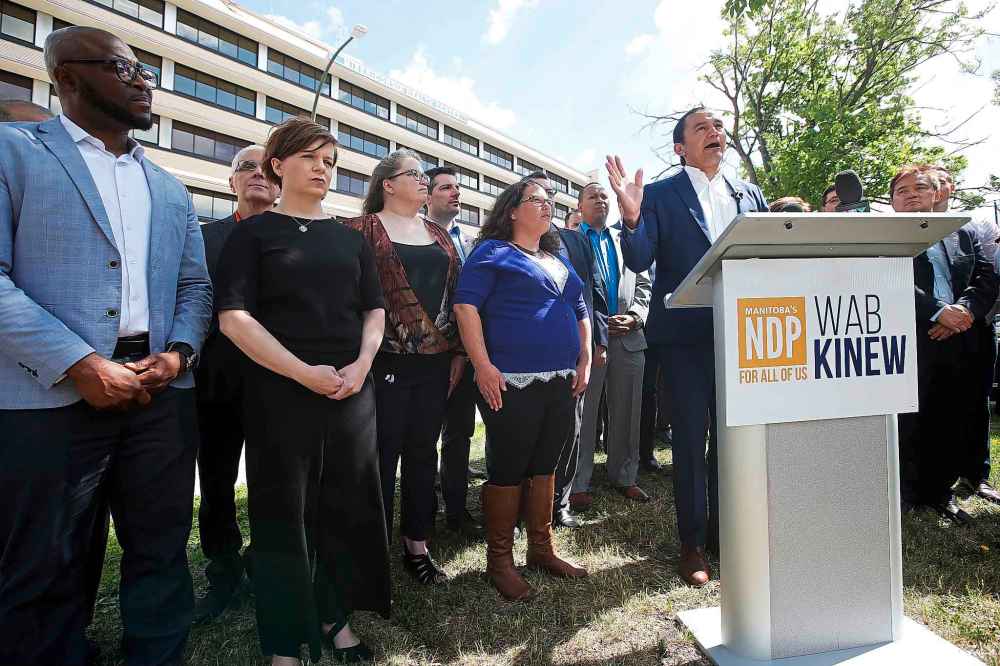
Kinew has floated the idea of raising taxes on high-income earners and corporations as a way of funding increased spending. But it’s unlikely even that would generate sufficient revenues to cover the kind of expenditure hikes Kinew has proposed. (Even the mere mention of tax hikes would undoubtedly alienate voters further).
Kinew has promised a full costing of the NDP’s campaign pledges this election. So we won’t know all the details of the plan until that blueprint is released.
Nevertheless, it’s difficult to imagine a scenario where an emphasis on heavy spending, tax increases and little to no interest in balancing the books would reverse the mistrust many voters feel towards the NDP.
It won’t be enough for the party to simply complain about the Pallister government’s health care reforms, which has been the main focus of the NDP for the past year. In fact, implementation problems aside, there is some level of public support for the Tories’ hospital consolidation plan. (The Tories have seen their support increase from 36 per cent to 42 per cent since the first phase of the plan was launched in the fall of 2017).
Calls to revert back to the former hospital system – which Kinew has already proposed – is unlikely to broaden NDP support, either, given the poor outcomes that model produced in the past.
Kinew and the NDP are in a tough spot.
They have much to gain if they play their cards right in this election. But they have so much to lose if they don’t.
tom.brodbeck@freepress.mb.ca

Tom has been covering Manitoba politics since the early 1990s and joined the Winnipeg Free Press news team in 2019.
Our newsroom depends on a growing audience of readers to power our journalism. If you are not a paid reader, please consider becoming a subscriber.
Our newsroom depends on its audience of readers to power our journalism. Thank you for your support.

